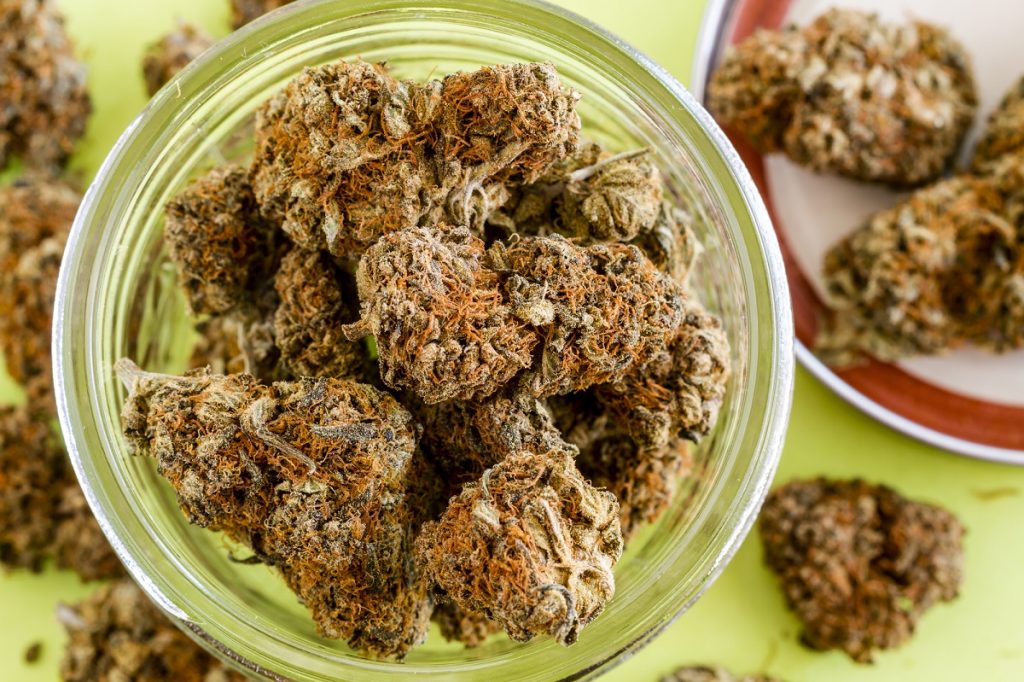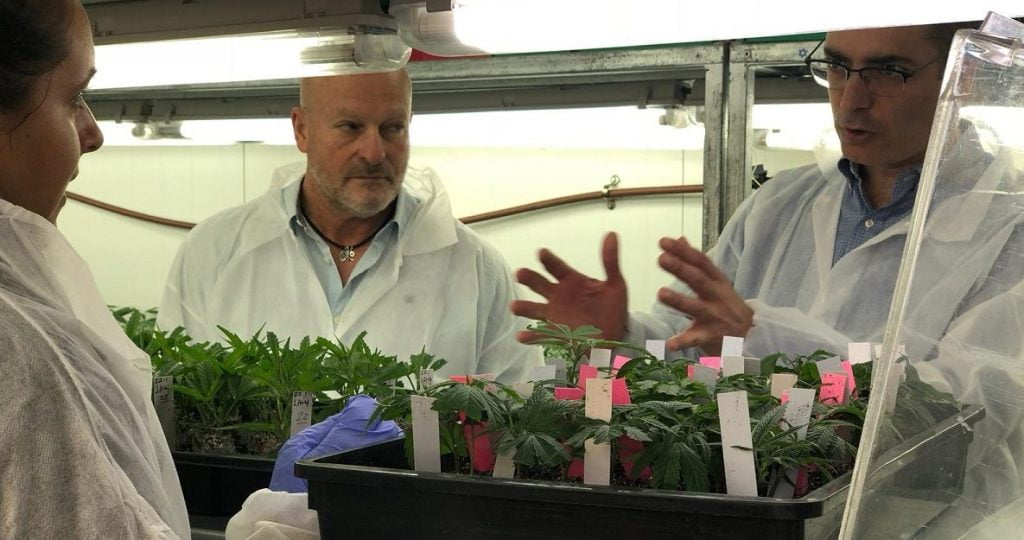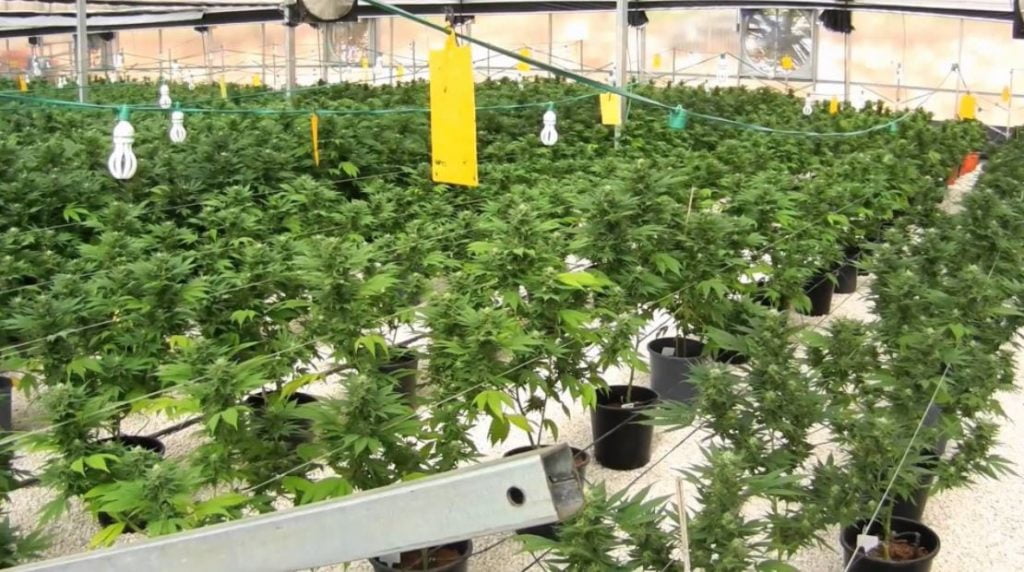The Israeli government has given its long-awaited approval for the medical cannabis export law, paving the way for the country to become a leading medical cannabis exporter and participant in a thriving sector that is expected to soar to $33 billion by 2022.
The Israeli Health Ministry announced on Sunday that following long deliberations, an inter-ministerial committee made up of officials from the health, finance, public security, foreign affairs, tourism, and agriculture ministries, recommended exports be allowed to proceed to “turn medical cannabis into a medical product like any other product that patients receive according to labels and dosages.”
In December, lawmakers voted in favor of the exports bill, part of a set of reforms first okayed in 2016, in second and third readings in the Knesset, pending cabinet approval.
SEE ALSO: 7 Israeli Startups Taking Medical Cannabis Into The 21st Century With Innovative, ‘Smart’ Devices
According to Israeli government research, medical cannabis exports is set to bring in an estimated $1 billion in revenue per year. Since the government announced the reforms two years ago, some 400 Israeli farmers applied for permits to grow cannabis, the Israeli Health Ministry said last year, with another 242 receiving preliminary approval. The ministry also said it received some 200 applications for cannabis nurseries seeking to distribute cannabis plants, 95 requests to set up cannabis pharmacies, 60 applications for processing facilities, and 44 requests to set up stores selling cannabis products.
The medical cannabis exports law hit a snag last year when Prime Minister Benjamin Netanyahu, much to the dismay of the local industry, froze export plans amid political wrangling and opposition by the Ministry of Public Security headed by Gilad Erdan which said it was afraid plants grown for exports would spill over into the recreational market, and demanded some NIS 200 million to its budget to help secure facilities. A reported conversation with US President Donald Trump, whose administration is taking a hard line against cannabis including its medical use, was also said to be the cause of the sudden export freeze.
The revised law provides a budget for police to monitor, track and control the production and delivery of cannabis for export, and prevent said spill over. Recreational use of cannabis in Israel is still not legal but licensed medical cannabis consumption for vetted physical and mental health issues has been allowed for a decade.
The law also specifies that any foreign investment of more than five percent in an Israeli cannabis company will require regulatory approval, according to startup accelerator iCan.

Large glass jar and lid filled with medical marijuana buds. Deposit Photos
Israel’s Deputy Health Minister Yaakov Litzman said in a statement on Sunday that he “supported the export of medical cannabis because of the economic contribution to the health system and the Israeli economy and after we reached an agreement with the Ministry of Finance to direct some of the resulting resources to the health system.”
“This is a dramatic move that was approved only after it passed all the meticulous procedures by professionals in Israel, in full cooperation with the relevant government ministries,” he added.
Sign up for our free weekly newsletter
SubscribeFinance Minister Moshe Kahlon posted a video to Twitter welcoming the decision and calling it a “logical and necessary move that will bring in millions and will strengthen the Israeli agriculture and technology industries.”
“The benefits are clear: the knowledge and the research, among the best in the world, is here in Israel, the farmers, also among the best in the world, are here in Israel,” Kahlon said. “We will continue to strengthen the Israeli economy,” he promised, adding that he hoped for further cooperation from the government to bring the law to full implementation.
Israel has over the years become a powerhouse of medical cannabis R&D due to the pioneering work of Hebrew University of Jerusalem Professor Raphael Mechoulam. In 1964, the renown organic chemist was the first researcher to identify cannabis’ THC compound, the chemical known for causing a “high,” laying the foundation for scientific research on cannabis and its use in modern medicine.
It’s also home to eight cannabis growing companies and dozens of cannabis startups and companies. Amid the exports freeze, Israeli medical cannabis growers and firms increasingly sought partnerships and opportunities abroad.
Moshe Bar Siman Tov, director-general of the Health Ministry, praised Israel as a “world leader in medical cannabis” and said the country has in recent years “created a process of high standardization of cannabis products for medical use, and a complete theory of compatibility between active ingredients and medical labels. We did this for Israeli patients, who are now starting to receive products safely and of the highest quality.”
SEE ALSO: Bill Nye Highlights Israel As The World Epicenter Of Medical Cannabis Research
“As a result of our move, Israel, both in the government, in the healthcare system and in the industry, have created knowledge and expertise that exists nowhere else in the world, which can be used to export high-quality products to the world,” he said.
Saul Kaye, founder and CEO of iCan, which hosts the annual CannaTech conference in Tel Aviv, told NoCamels recently that Israel can become the leading global export nation of medical cannabis, where “cannabis will become as important to Israel’s economy as high-tech.”
Related posts

Editors’ & Readers’ Choice: 10 Favorite NoCamels Articles

Forward Facing: What Does The Future Hold For Israeli High-Tech?

Impact Innovation: Israeli Startups That Could Shape Our Future





Facebook comments